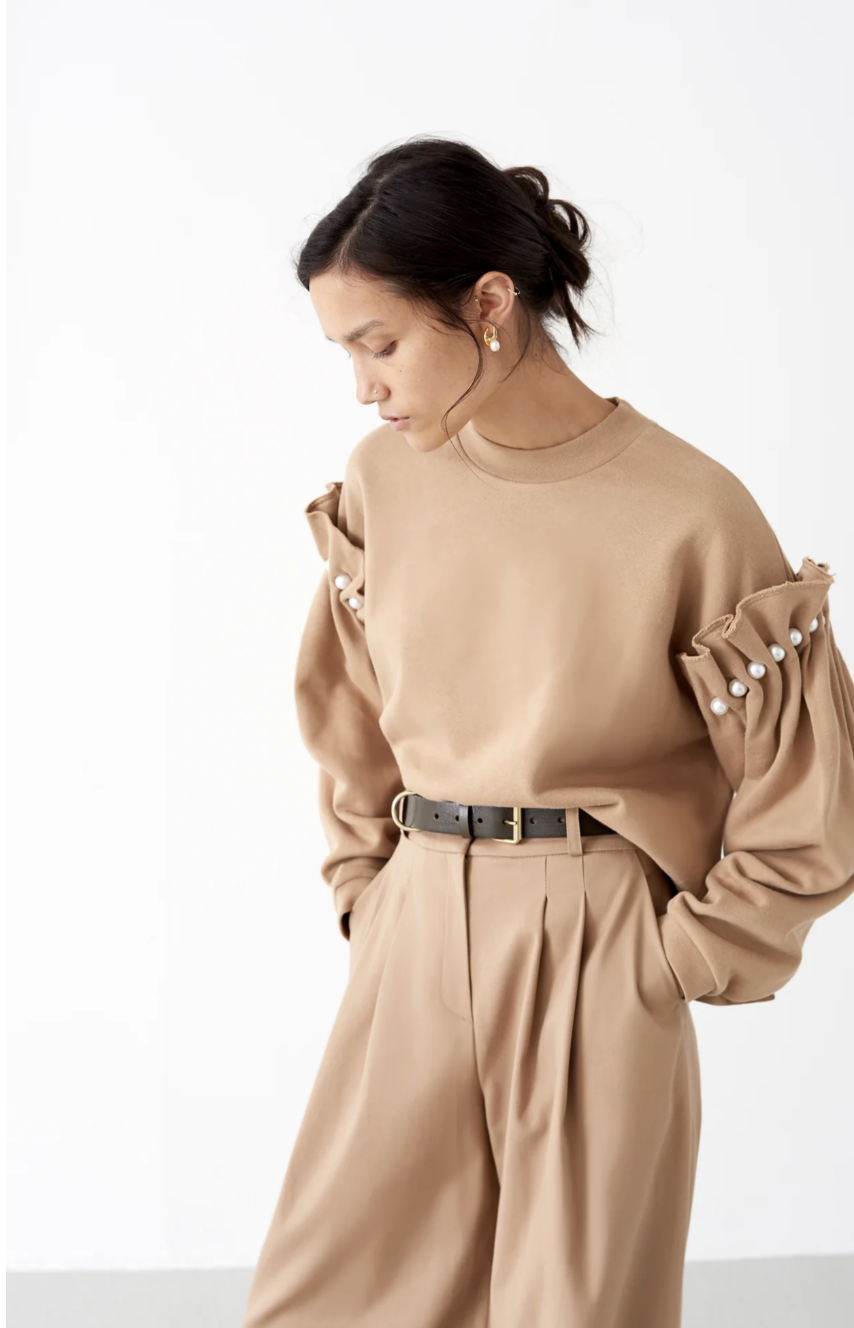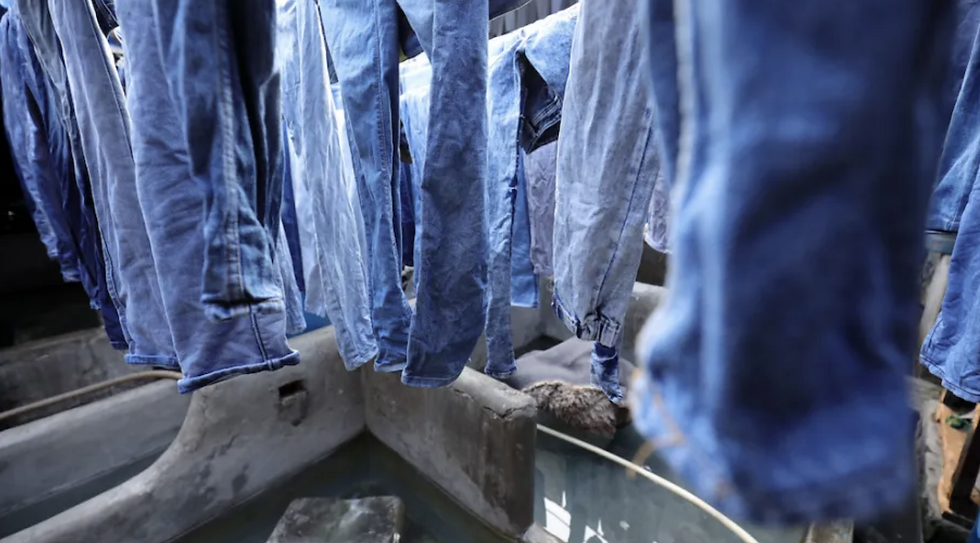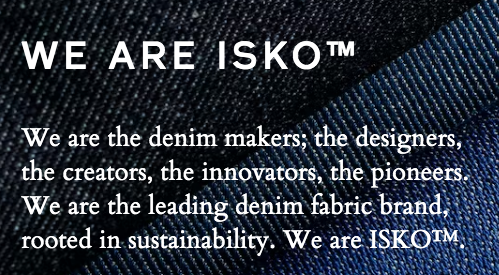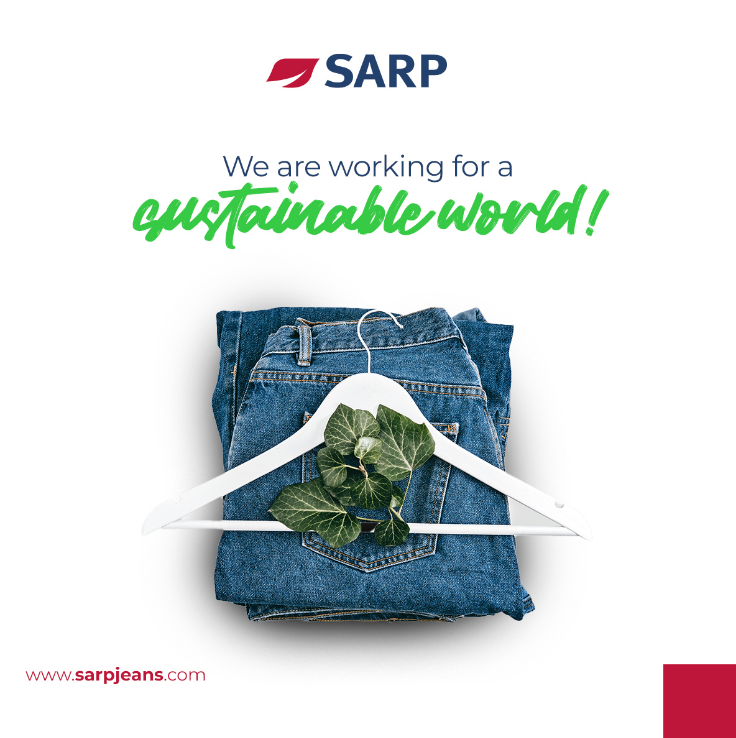Fashion Reimagined
- jacquelinedmschuma
- Oct 24, 2023
- 7 min read
Updated: Oct 24, 2023
Hello October!
How’s everyone doing?
Exchanging pleasantries doesn’t really make sense for a blog post…..but it also doesn’t feel quite right to not ask :) I hope anyone reading finds themselves having a pleasant day :)
I debated what to write about this month, as the natural topic for October in the conscious fashion space is Halloween costumes. (The inherent fast fashion- ness of it all; cheap one-time-use materials destined to be thrown out on November 1st). But I was much more enthralled with something else that finally made its debut for those of us in the U.S.
Maybe next year I’ll share my opinions on Halloween costumes but for this year, (and this month)- I want to chat about Becky Hunter’s 2022 documentary Fashion Reimagined.
As soon as I came across the trailer I could not wait to see it. And knew the piece of genius that awaited me. (Come on..... I work in conscious fashion and this film is about creating a sustainable fashion collection- of course I thought it would be genius :)
(Side note- I wanted to include clips and images from the film but annoyingly, Apple won't allow it. So any images are either from the trailer or from her core collection that the film is based around: No Frills).
The world premiere was at the Tribeca Film Festival in New York and showings trickled down to various platforms and in-person screenings. For those in the U.S, it's now available to watch on Amazon Prime and Apple. The tagline of the film is:
“Trailblazing fashion designer Amy Powney is on a mission to create a sustainable collection from field to finished garment and transform the way we engage with fashion.”

And it’s about just that.
My hope is of course, that everyone will watch this film and I don’t want to give it all away, so there will be no play-by-play of the entire doc, but I will share my thoughts and overall takeaways.
For a little more context, here’s an in-depth summary:
“Fashion designer Amy Powney of cult label Mother of Pearl is a rising star in the London Fashion scene. Raised off-the-grid in rural England by activist parents, Amy has always felt uneasy about the devastating environmental impact of her industry. When she wins the coveted Vogue award for the Best Young Designer of the Year, which comes with a big cash prize, Amy decides to use the money to create a sustainable collection from field to finished garment and transform her entire business. Over the following three years, her own personal revolution becomes the precursor of a much bigger, societal change.”
Needless to say, I was hooked during the whole thing; practically drooling. With only one year of film high school under my belt, I was taught to consider many aspects of a film when critiquing. And it’s no secret that I didn’t become a film critic but I do have fun keeping an eye on set design, overall flow, costumes, score, and of course continuity errors. Conscious fashion aside- the director, DP, crew of editors, and producers did a beautiful job of providing factual information about the industry while not overwhelming the viewer. I also thoroughly enjoyed the score- it was woven effortlessly throughout the film. (Pun intended :) But getting to Amy Powney’s story - I was struck by her resiliency, modesty, and teachable attitude.

As a young professional starting out in my career, and being……human…..many hesitancies show up from time to time. Things like imposter syndrome, doubt in my skills, nervousness, etc. That’s all natural. But there’s some part of me that for whatever reason is still under the impression that people who have 10+ years of experience under their belt are exempt from feeling this way. Amy Powney started at Mother of Pearl from the bottom and worked her way to Creative Director. She won a Vogue award. She knows how the industry works. She is an incredible designer. And yet, when going back to the drawing board to make a different kind of collection, she didn’t show up on a high horse but rather with a moldable demeanor. After achieving as much success as she has, most people would air on the side of prestige, pride, and sometimes arrogance, and almost always a bigger ego than when they came in. People admire Amy’s seemingly natural modesty and I do as well, but I also find comfort in it.
It’s comforting to see such humble regard for success because, again to reiterate- most people would let it go to their head but also, it makes me feel like this type of success is so much more achievable. And it humanizes her.
During my time at FIDM, I naively considered any famous or well-known fashion designer to be almost….not human. They were an anomaly on a pedestal. I no longer feel this way but still seek a high level of "success," and this is where the comforting feeling bleeds into hope for me. Seeing Amy- someone who claims she “never really fit in with the fashion scene", achieve so much success, makes me feel like I could do it too. While watching, I thought:
“Wow, she’s a real person. She’s so approachable. I could have a chat with her. There's no vibe of “don’t look me in the eye- you better not say the wrong thing,” hoity-toity fake. She’s a person. And I am too. I could achieve great things like her.”
Another facet of Amy’s personality that I truly came to admire is her resilience. To go from staying within brand parameters for so long, then declaring a change of business, restructuring every step……..that takes a lot of grit and courage. And after many doors slammed in her face, confused looks, disinterested glances and more no’s than yes’s- she kept going. She just kept going when the going got tough. I admire and respect this fervently.
About halfway through the documentary, Amy and her right-hand gal Chloe Marks (Product Developer), address the mountain that is adding a denim piece to the collection. The other garments made thus far were sourced from non-mulesed, traceable wool but Amy wanted to ensure a staple piece was included. One that is made from a fabric regarded as a classic of all time: denim.
After all, at any given time, 50% of people on earth are wearing denim.
Amy illustrates the good, the bad and the ugly of denim. It’s the classic American workwear but in terms of sustainable denim- that's almost an ironic, hypocritical concept because, on one side, these garments last a long time. For generations even! And the longer the clothes last, the more they are worn and the longer they stay out of landfills.
But on the other hand, denim fabric and denim garments are some of the most harmful products to make. I explain this in another blog post but to reiterate- it’s harm comes from all the steps it takes to get from concept to completion. From seed to closet. From farm (or petroleum) to customer.
Denim is traditionally made from cotton, which is extremely water-intensive and uses an appalling amount of unregulated pesticides. These pesticides are harmful to the environment- degrading the soil, driving the extinction of bees. What’s worse, those who work in the cotton fields day in and day out suffer health issues from these pesticides, even causing death. And the denim that has any stretch in it comes from polyester, spandex, or similar fibers which means they are synthetics and synthetics are made from petroleum.
After the cotton is grown and harvested, it must be cleaned and spun into yarn which is than woven into fabric. This process is again…..sadly...chemically and water-intensive between the machinery use, and synthetic indigo dye….. Shall I keep going?
After the fabric has been made, it can finally be cut and sewn into whatever it is meant to be- a classic pair of jeans, a denim jacket, a lightweight jumper, etc. After this, the wet and dry finishing steps come into play: stone washing, enzyme washing, resin finishes, ozone fading, sandblasting, chemical sprays, whiskering, grinding, etc. Again….these practices are a two-fold devastation for people and the environment. These chemicals cause various health issues such as lung problems, skin diseases and even cancer for those who are working around them day in and day out.…… denim is traditionally a dirty business.
Amy and Chloe are just as devastated as I am by the realities that come from making denim in our modern-day world. But in true Amy Powney fashion- there is hope. There has to be a better way.
After sitting in the realities of all this and continuing research, they debate about where to source their raw materials, and cautiously proceed on a Turkish denim mill called ISKO.
The cautious optimism is rooted in their inability to physically visit the cotton farms from where ISKO receives their cotton- confirming its organic nature and the fair treatment of workers. It isn't Any andChloe's first choice to rely on 3rd party certifications. But as they both point out- they have to start somewhere and the GOTS certification is highly regarded respected and verified. A GOTS certification is the Global Organic Textile Standard (for Ecology and Social Responsibility).
It means many things- the use of hazardous materials is prohibited, the minimum working age is 16, all their processes are monitored, every person working throughout the supply chain is ensured a living wage and the cotton used is organic- meaning it was grown without any pesticides. It isn't ideal for Amy and Chloe to not be able to verify everything firsthand but using a GOTS certified fabric mill is a fantastic route that is far better than the traditional avenue.
After finding a denim mill, Amy and Chloe move on to find a denim manufacturer whose values align with their new mission: SARP jeans.
This was a huge win because both ISKO and SARP Jeans are in Turkey; meaning it's less distance for the fabric to travel, lowering carbon emissions.
The remainder of the film depicts Amy's design process, showings for buyers in Paris, her chat with sustainable fashion pioneer Katherine Hamnett, launch day of the No Frills collection, and the spectacular outcomes preceding her collection debut.
I've already stated the comfort and hope this film has brought me, and I would normally articulate further, criticize more or dive deeper but this one was pretty straight forward for me. Amy's talents are a gift to world. Thank goodness for people like her who stand up against the norm and call out the insanity that is making clothing at the expense of others. It's not just Amy, but her whole team at Mother of Pearl who have embraced the change and remain a light in a dark industry.
She has truly restructured, redesigned and reimagined fashion.















Comments